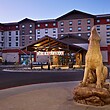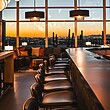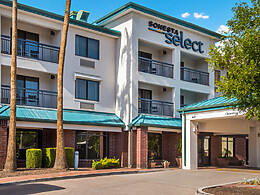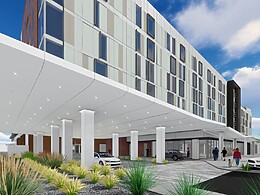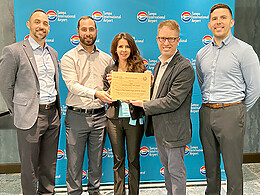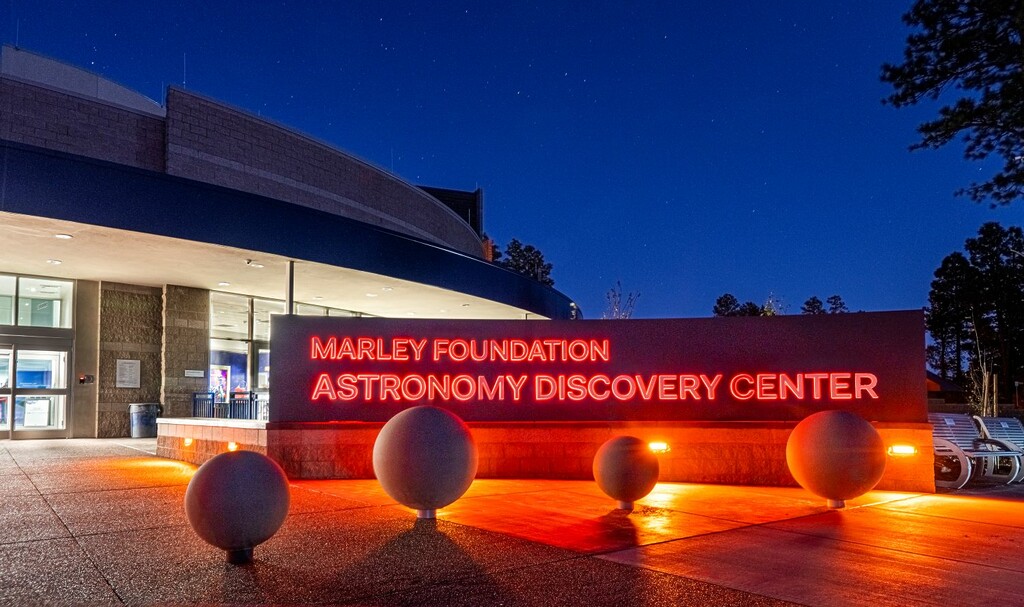
On November 16, Flagstaff’s Lowell Observatory debuted its newest addition, the Marley Foundation Astronomy Discovery Center.
Described as “a place where curious visitors come to be awed by the cosmos and learn about astronomy,” the 40,000-square-foot Astronomy Discovery Center boasts two hands-on exhibit rooms, a multi-story LED theater and a first-of-its-kind dark sky planetarium.
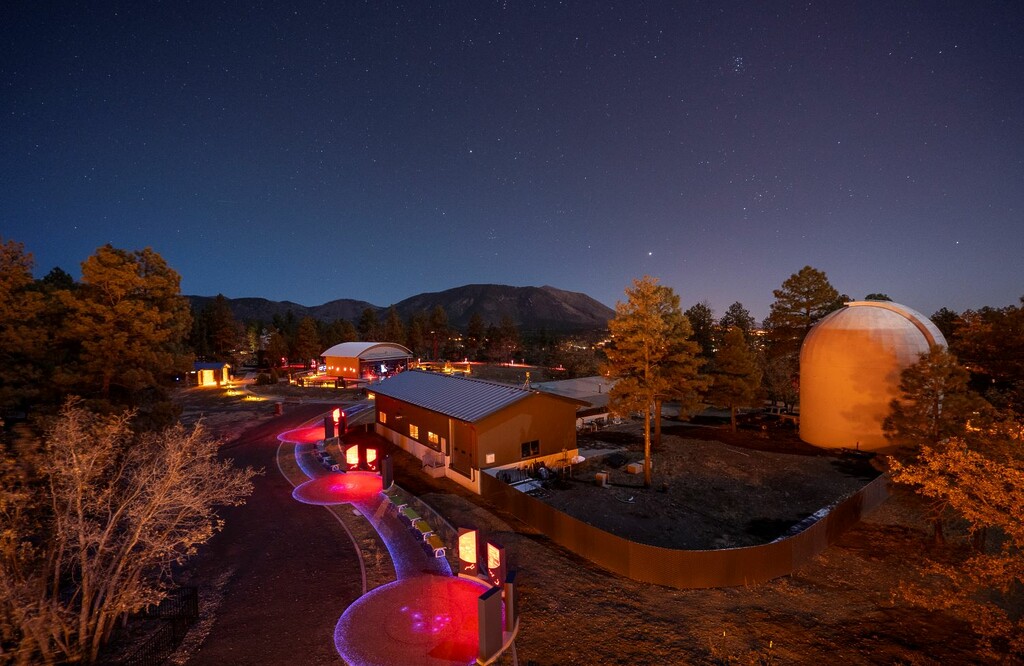
“The Astronomy Discovery Center embodies the spirit of exploration and discovery that has been at the heart of Lowell Observatory for more than a century,” Lowell Observatory’s COO, Dr. Amanda Bosh, said in a press release. “This center will inspire awe and curiosity in visitors of all ages, providing an unmatched experience that combines cutting-edge technology with the beauty of Flagstaff’s dark skies.”
Long held as a beacon of the astronomy community, the Lowell Observatory has contributed to many scientific advancements – most notably, the discovery of Pluto. With the addition of the Astorony Discovery Center, the foundation hopes to attract a new generation of visitors to experience the wonders of space exploration.
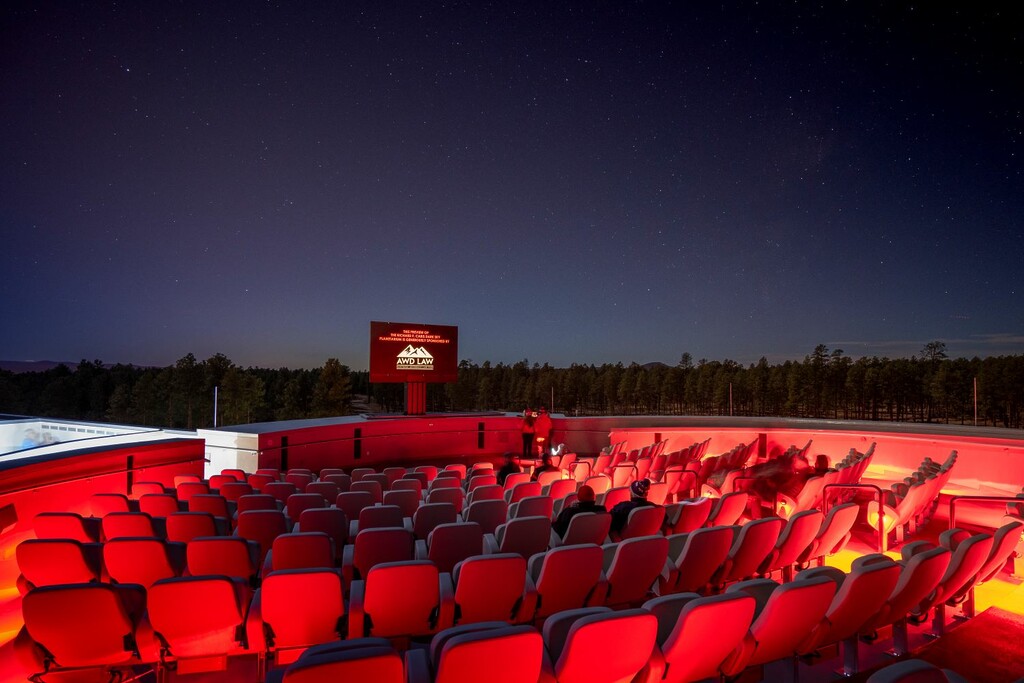
“We intended for the Discovery Center to be a gateway for the entire Lowell experience,” said Samantha Christensen, Lowell’s ADC Interpretive Content Manager.
The main draw of the Discovery Center is the rooftop Dark Sky Planetarium, which uses Flagstaff’s dark skies as a natural planetarium dome. Complete with heated seats, guests can sit back and enjoy the natural beauty of the cosmos while Lowell educators provide detailed information on visible stars, constellations and planets. The Planetarium also features a large screen to enhance the laser pointer presentation.
“We can point to the object you see with your naked eye, which might look like a fuzzy star, and call up the image on the screen,” Christensen said. “We’re providing people deeper access to the sky.”
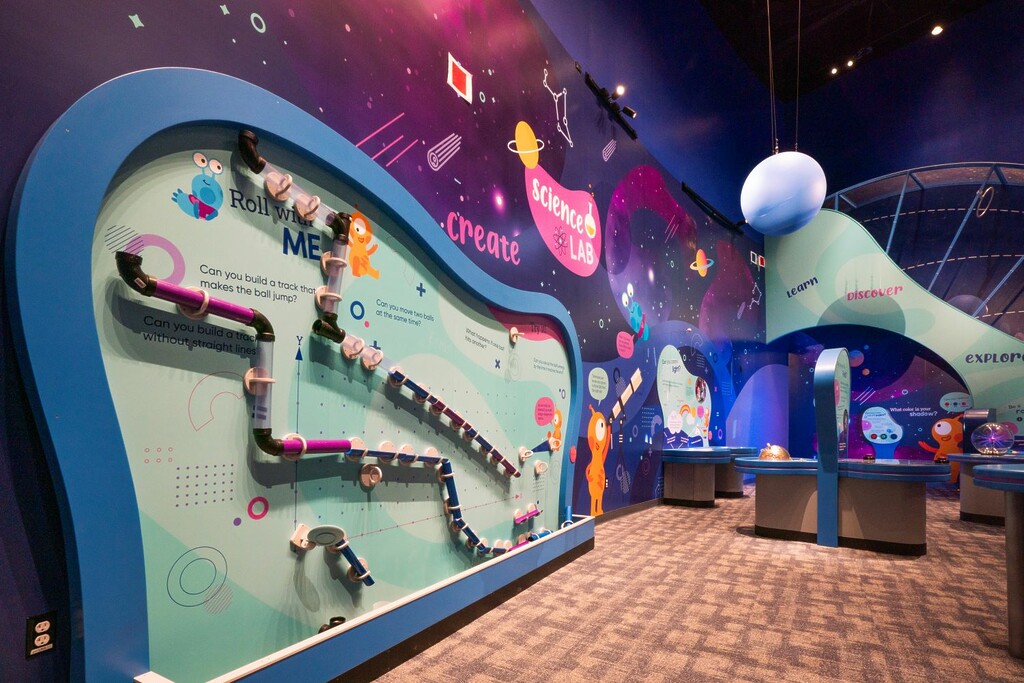
Inside the main building sits the Lowell Universe Theater, featuring a 160-degree screen and a stage for interactive presentations, plus two rooms dedicated to learning more about the universe around us. The hands-on Orbits Curiosity Zone provides an overview of physics and astronomy concepts through interactive displays and take-home activities, and the adjacent Astronomy Gallery explores how life on Earth came to be.
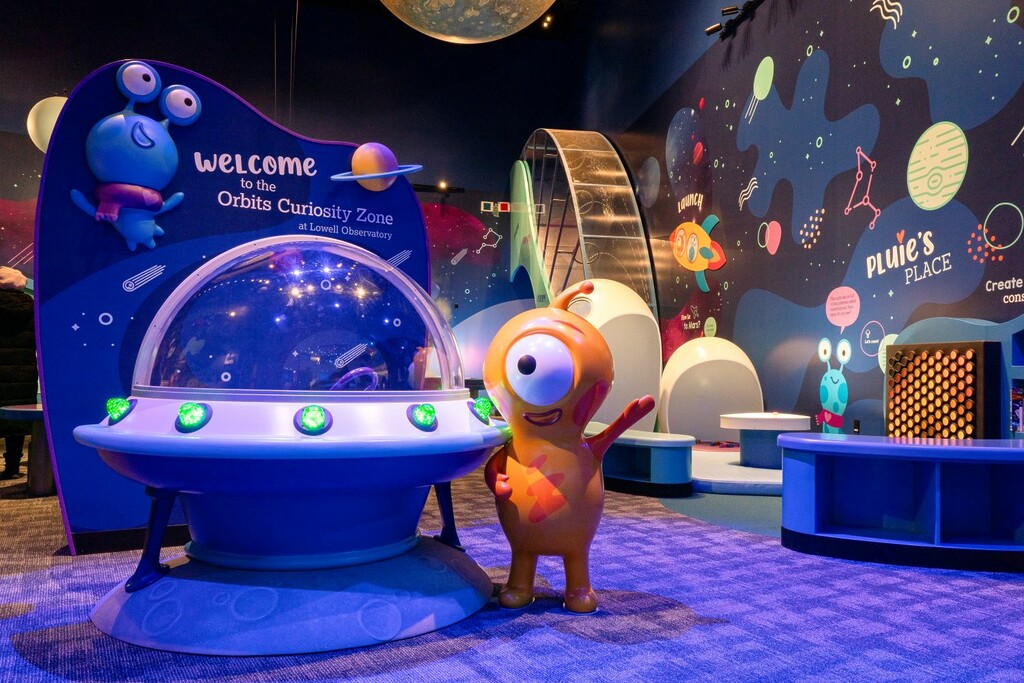
“People visiting our other facility would often ask, ‘Why should I care about stuff that’s happening billions of miles away?’” Christensen said. “We’re aiming to make it more obvious how astronomy connects to you.”
Visit lowell.edu to learn more about the Astronomy Discovery Center.



